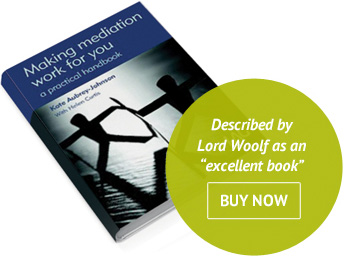BLOG
Call for Evidence by 30 September 2021
August 31, 2021
The government is asking for people and organisations either within or outside of the court system to complete an online survey, or submit a response about dispute resolution mechanisms to Disputeresolution.enquiries.evidence@justice.gov.uk, by 30 September 2021.
The government’s stated ambition is to mainstream non-adversarial dispute resolution mechanisms. The findings of the Call for Evidence will be made available in summarised and anonymised form. This represents an opportunity to provide an accurate picture of the advantages as well as the pitfalls within the spectrum of dispute resolution processes in an effort to inform how the government responds. It is generally accepted that the pandemic has created additional pressure on the courts and delay for litigants. The government has declared its commitment to the development of more effective dispute resolution mechanisms and says this is not simply about turning people away from litigation, it is to provide, ‘a more proportionate system by giving people a fuller, more integrated, range of routes to get the best outcomes for their issue’.
The survey covers 6 specific topics split into 32 questions ranging from what operates as an incentive to settlement through to the use of technology including AI as well as the economic costs/benefits of dispute resolution schemes. This is not a survey in my experience which can be completed within an hour let alone minutes. Find a comfortable place to sit for a while with the requisite tea/coffee/water. The questions are searching and request data and examples in support of answers. Question 1 alone could take 15 minutes: ‘Do you have evidence of how the characteristics of parties and the type of dispute affect motivation and engagement to participate in dispute resolution processes?‘. Caution: there is no word limit!
By question 15: ‘Do you have any summary of management information or other (anonymised) data you would be willing to share about your dispute resolution processes and outcome? This could cover volumes of appointments and settlements, client groups, types of dispute and outcomes. If yes, please provide details of what you have available and we may follow up with you‘, I have formed the optimistic view that depending on how many people respond to the survey and how seriously the responses are taken, the body of collated evidence could be instrumental in what unfolds for dispute resolution and access to it in the future.
There are questions in the survey which make me think that research – if funded – may be available in time to provide objective answers. For example ‘Do you have evidence of how and to what extent technology has played an effective role in dispute resolution processes for citizens or businesses?’. At present the answers will necessarily be subjective. How the evidence will be unpicked and evaluated to produce findings presents – to me – a challenge. The questions are phrased in a way which would permit the inclusion of topics not directly asked about for example, the availability of legal representation to parties before/at a mediation and how that could assist.
Even if you don’t have the time to answer all the questions, please give some time to answering some of the questions. The more evidence there is the greater the scope there may be in dispute resolution processes, which meet the needs of the parties, being devised.

